If Marcia Williams is thought of at all today, it is in terms of hysterical outbursts, a mysterious hold over the Labour prime minister Harold Wilson and, above all, the ‘Lavender List’ – Wilson’s 1976 Resignation Honours List in which Marcia is believed to have played a significant part. Linda McDougall, the widow of the Labour MP Austin Mitchell, gives an infinitely more nuanced and sympathetic picture of this extraordinary woman. I found her biography gripping, with its insider knowledge of government, its picture of the emotional dynamics of Downing Street and its sensational claim that Marcia may have been drugged by Wilson’s own doctor.
The Williams-Wilson partnership – there is no other word for it – started when, after graduating from London University’s Queen Mary College, Marcia spotted the potential of Wilson, 16 years her senior and then the ambitious Labour MP for Ormskirk. She became his private and political secretary in the 1964-70 and 1974-6 governments and was ennobled by him in 1976 as Baroness Falkender.
McDougall sets out the case early on for Marcia – a brickworks manager’s daughter, born Marcia Matilda Field on 10 March 1932 – to be regarded as the most influential woman in 20th-century politics after Margaret Thatcher. She also makes plain just how difficult it was for a woman to forge a career in the 1950s and 1960s – a time of hats and gloves and looking after children at home.
From the start, Marcia was much more than a secretary. Complementing Wilson’s more technocrat approach, her finely honed political antennae picked up nuances he missed. Wilson was considered a touch downmarket by the Labour élite of those days. There was even a rumour that he and Mary had flying ducks on the wall of their front room, while his gritty Yorkshire accent was in strong contrast to the more refined tones of the circle around Hugh Gaitskell. As Marcia (who I knew well from the early 1980s, when I ghosted her second book) once remarked to me: ‘What confused people about Harold was that he had a Balliol brain but Brown Sauce tastes.’ Much sharper and wittier than Wilson, she coached him for speeches in the House of Commons. Politics was the air they both breathed. For the first 14 years she worked with him, Marcia was an equal partner. Roy Jenkins regarded her as the best politician in Wilson’s circle.
Once in Downing Street, after the first Labour victory for 13 years, it was a struggle for Marcia to have her political office installed. ‘I was doing the same job as John Wyndham [Harold Macmillan’s political secretary],’ she said to me, ‘but nobody ever called him a jumped-up secretary.’ McDougall describes how No. 10 was then managed by civil servants who believed it was their job to ‘run’ the prime minister. They failed to see that Marcia was essential to him, a non-negotiable part of his premiership, so that from the start rumours were rife that she had a hold over him owing to some earlier sexual relationship. The fact that in the Strangers’ Dining Room in the House of Commons they would always sit at a table for two and go over correspondence was even cited as evidence.
It was not long before Downing Street began to resemble a medieval court with its plots, counterplots, intrigues and rumours. In 1968 Marcia secretly gave birth to a son, and to another the following year. She had fallen in love with Walter Terry, the political correspondent of the Daily Mail, and believed he would get a divorce and marry her. The births were not reported thanks to Lord Goodman, a lawyer of such influence that he could persuade the various press lords to keep the story dark. Not only was illegitimacy stigmatised; there was the fear that everyone would assume Wilson was the father, unleashing the sort of scandal that would finish his career. It was not until six years later that the boys’ existence was revealed by Private Eye.
When Joe Haines arrived as Wilson’s press secretary at the end of the 1960s, the dynamics of No. 10 became even more complex. Haines was obsessed with the relationship between Marcia and the prime minister, writing early on that Wilson depended on her ‘practically, psychologically and intellectually’. Thirty years later he was vitriolic about her. But Bernard Donoughue, who became head of the Policy Research Unit, thought her ‘a much better politician than H.W. or most other MPs’.
Labour, defeated by Ted Heath in 1970, returned to power in the 1974 general election with a mere three-seat majority. It was then that Marcia’s behaviour changed from ‘bright and lively’, as Donoughue’s diary described her, to the hysterical outbursts for which she is remembered. She had been left by Terry, felt isolated, was exhausted by work and was bombarded by reporters, who thought nothing of banging on her front door at all hours and climbing on her windowsills to peer in. To keep herself alert she took Purple Hearts (Drinamyl) and handfuls of Valium to calm herself down and sleep, all prescribed by Wilson’s doctor, Joe Stone. At the time, doctors were unaware of the addictive power of these drugs and their effects on personality. McDougall, a successful television producer as well as author, writes of this period with great sympathy, admitting that she herself became hooked on Valium during a difficult period in her professional life, and that it took two years to rid herself of this addiction.
‘[Harold]… loves it when she shouts at him, corrects him, opposes him,’ wrote Donoughue in his diary. Wilson’s surprise resignation in 1976, followed by the Lavender List, ‘thrust Marcia into the spotlight as some kind of mysterious mastermind controlling the prime minister’, says McDougall. The truth was much simpler. With every typewriter in Downing Street packed up, Marcia had neatly copied the names – written on the various scraps handed to her by Wilson – on to a sheet of pink paper (so the leaker must have been slightly colour blind).
However Marcia and Harold’s relationship had begun, they were life partners in politics, says McDougall. Even Joe Haines had to admit ‘she was his manager and his political wife’.
Got something to add? Join the discussion and comment below.
Get 10 issues for just $10
Subscribe to The Spectator Australia today for the next 10 magazine issues, plus full online access, for just $10.
You might disagree with half of it, but you’ll enjoy reading all of it. Try your first month for free, then just $2 a week for the remainder of your first year.

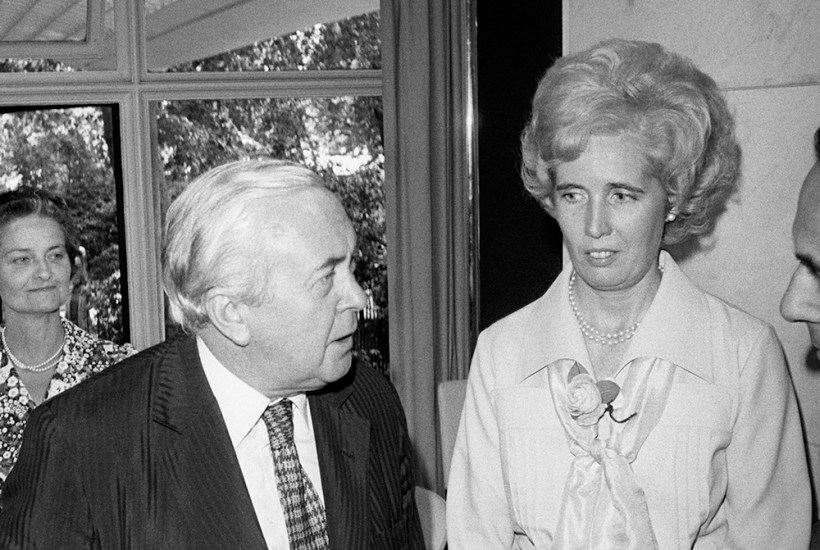
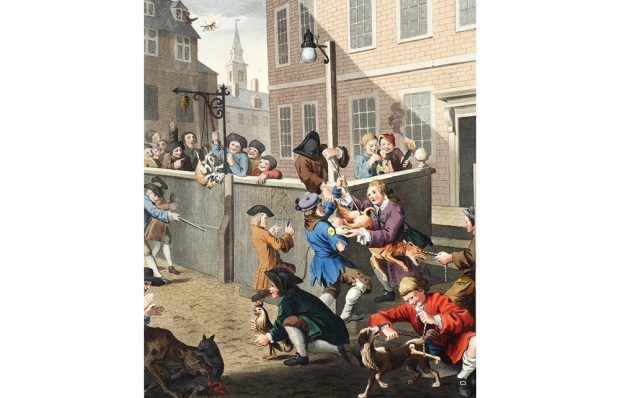
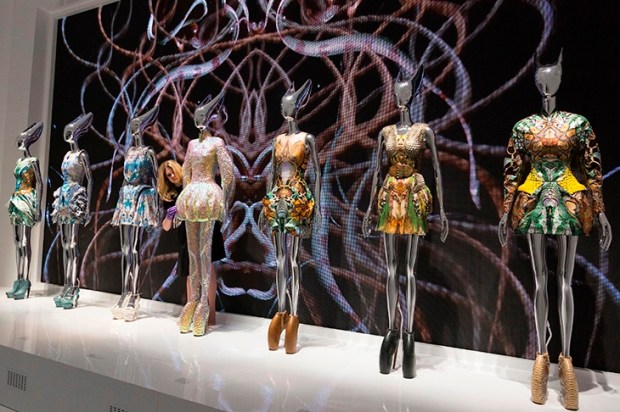

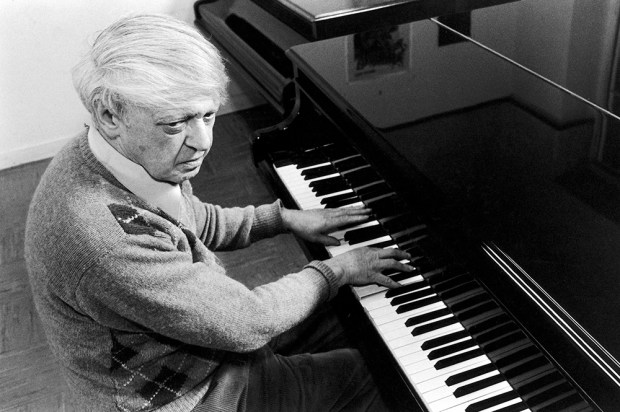

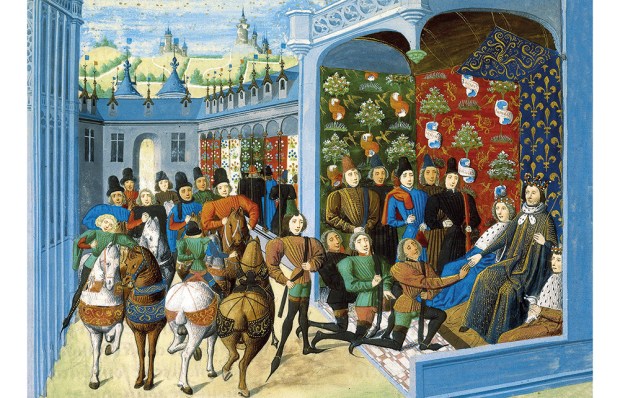






Comments
Don't miss out
Join the conversation with other Spectator Australia readers. Subscribe to leave a comment.
SUBSCRIBEAlready a subscriber? Log in